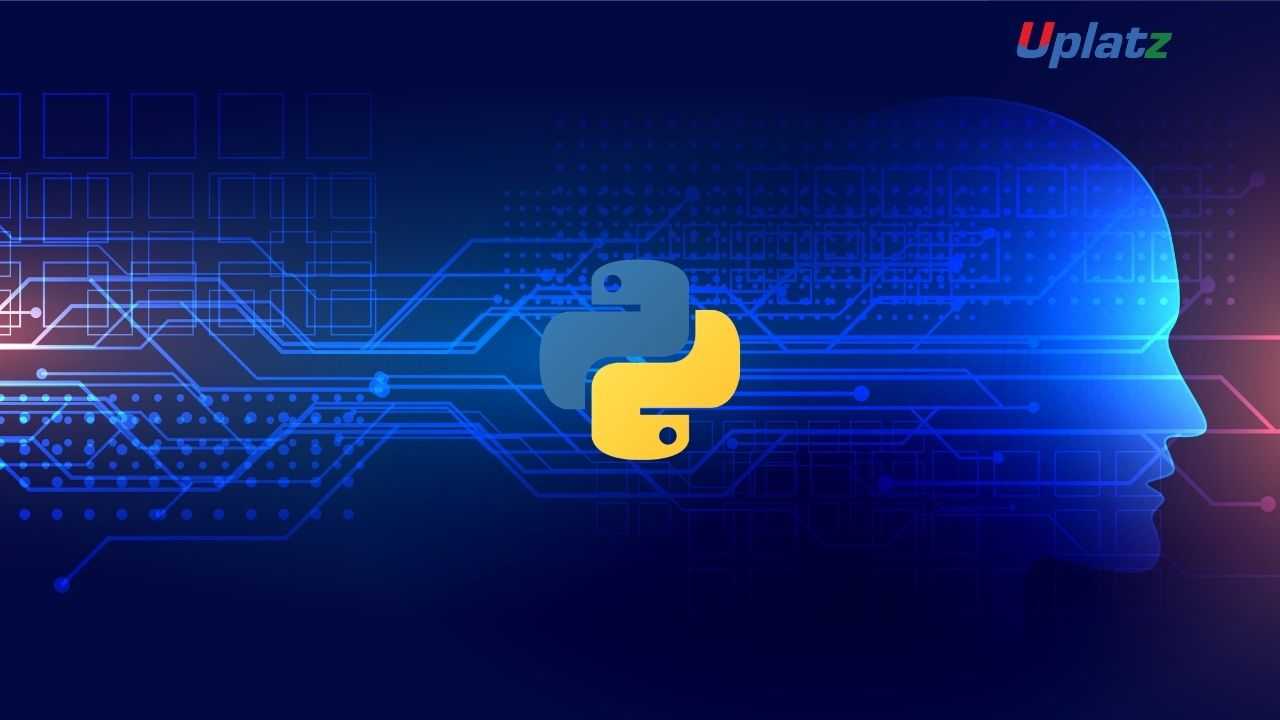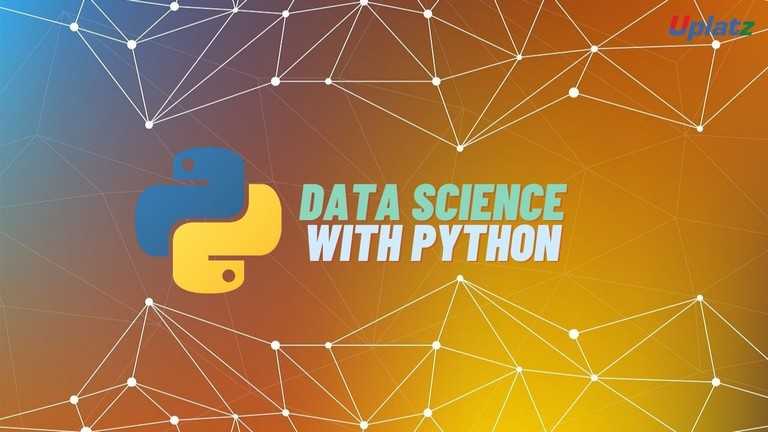MLflow
Learn end-to-end model tracking, packaging, and deployment with MLflow for efficient machine learning lifecycle management.Preview MLflow course
Price Match Guarantee Full Lifetime Access Access on any Device Technical Support Secure Checkout Course Completion Certificate 95% Started a new career
BUY THIS COURSE (
95% Started a new career
BUY THIS COURSE (GBP 12 GBP 29 )-
 83% Got a pay increase and promotion
83% Got a pay increase and promotion
Students also bought -
-

- Machine Learning (basic to advanced)
- 65 Hours
- GBP 12
- 4543 Learners
-

- Machine Learning with Python
- 25 Hours
- GBP 12
- 3518 Learners
-

- Data Science with Python
- 45 Hours
- GBP 12
- 2931 Learners

MLflow is an open-source platform that simplifies the entire machine learning (ML) lifecycle, from experiment tracking to model deployment. Built by Databricks and embraced by the global ML community, MLflow empowers data scientists and ML engineers to organize, reproduce, and scale experiments efficiently across teams and environments.
This Mastering MLflow – Self-Paced Online Course by Uplatz is designed to help you understand how to manage complex ML workflows with ease. You’ll learn how to track experiments, version models, deploy pipelines, and implement MLOps practices that make your machine learning projects production-ready.
Whether you’re an individual practitioner, a member of a data science team, or a DevOps engineer responsible for model deployment, this course gives you the knowledge and practical skills to streamline ML workflows using MLflow’s four key components — Tracking, Projects, Models, and Registry.
🔍 What is MLflow?
MLflow is a modular, open-source platform for managing the end-to-end machine learning lifecycle. It provides a unified interface for recording experiments, packaging models, and deploying them across local or cloud environments.
MLflow solves one of the biggest challenges in machine learning — reproducibility. In traditional workflows, tracking parameters, datasets, and results across multiple experiments can become messy. MLflow centralizes all these artifacts, allowing teams to track, compare, and deploy models consistently.
At its core, MLflow consists of four major components:
-
MLflow Tracking: Records metrics, parameters, and artifacts from every run.
-
MLflow Projects: Packages code into reproducible and shareable units.
-
MLflow Models: Defines a standardized way to package and serve models across frameworks.
-
MLflow Registry: Manages versioning, approval, and staging of models in production.
These components can be used individually or integrated into your existing pipelines, making MLflow one of the most flexible tools for MLOps.
⚙️ How MLflow Works
MLflow integrates seamlessly with popular ML frameworks like scikit-learn, TensorFlow, PyTorch, and XGBoost, as well as with cloud platforms such as AWS, Azure, and GCP.
Here’s how it functions across the ML lifecycle:
-
Tracking Experiments: Log parameters, metrics, source code, and outputs for every run. You can visualize performance differences and reproduce previous results effortlessly.
-
Packaging Projects: Use MLflow Projects to encapsulate your code and environment dependencies for consistent execution anywhere — locally, in containers, or on the cloud.
-
Model Management: Save and serve models using the MLflow Models API. Models can be deployed to REST endpoints, batch services, or edge environments.
-
Model Registry: Version and manage the lifecycle of models — from development (“Staging”) to production (“Production”) — ensuring governance and traceability.
The beauty of MLflow lies in its framework-agnostic design, meaning you can use it with any programming language or ML library.
🏭 How MLflow is Used in the Industry
Modern organizations rely on MLflow to streamline their machine learning operations (MLOps) and scale AI initiatives. Its open, modular design enables integration into nearly any environment, from small startups to large enterprise ecosystems.
Common industry use cases include:
-
Model Experimentation: Comparing algorithm performance on various datasets.
-
MLOps Pipelines: Automating training, validation, and deployment workflows.
-
Cloud Deployment: Serving models through AWS SageMaker, Azure ML, or Google Vertex AI.
-
Enterprise Model Governance: Managing model versions, approvals, and audits.
-
Team Collaboration: Sharing experiment data across cross-functional teams.
Top tech companies, financial institutions, and research organizations use MLflow for reproducible workflows, ensuring that model development, deployment, and monitoring follow consistent standards.
🌟 Benefits of Learning MLflow
Learning MLflow provides immediate and long-term benefits in your data science and machine learning career:
-
End-to-End Control: Manage the complete ML lifecycle from one interface.
-
Reproducibility: Guarantee identical results across experiments and environments.
-
Framework Independence: Integrates with TensorFlow, PyTorch, scikit-learn, and others.
-
Deployment Flexibility: Deploy locally, in Docker containers, or in cloud MLOps services.
-
Version Management: Keep track of model versions and transitions easily.
-
Team Collaboration: Centralize experiment tracking and sharing across teams.
-
Career Advancement: MLOps and MLflow skills are highly sought after in AI and data engineering roles.
By mastering MLflow, you’ll gain not only technical know-how but also the professional discipline to implement structured, scalable, and production-ready machine learning pipelines.
📘 What You’ll Learn in This Course
This self-paced course walks you step-by-step through all the key functionalities of MLflow, using real examples and datasets. You’ll learn how to:
-
Understand MLflow’s architecture and lifecycle components.
-
Use MLflow Tracking to record and compare experiment metrics.
-
Package reproducible workflows using MLflow Projects.
-
Deploy models using MLflow Models to local servers or cloud endpoints.
-
Manage and version models using the Model Registry.
-
Integrate MLflow with Python ML libraries and CI/CD pipelines.
-
Implement a complete MLOps workflow with real-world projects.
-
Automate model serving and testing using MLflow REST APIs.
By the end, you’ll have built and deployed a fully functional MLflow pipeline, demonstrating your ability to manage every stage of an ML project from experimentation to production.
🧠 How to Use This Course Effectively
To maximize your learning outcomes:
-
Start with Fundamentals: Understand MLflow’s role in solving lifecycle challenges.
-
Hands-On Practice: Log real experiments using datasets provided in the course.
-
Build Projects: Use MLflow Projects to encapsulate environments and dependencies.
-
Experiment with Deployments: Deploy models locally, on Docker, or cloud environments.
-
Utilize the Registry: Track model versions, transitions, and governance workflows.
-
Final Project: Build a complete end-to-end pipeline and deploy it for evaluation.
This approach ensures both theoretical understanding and practical proficiency.
👩💻 Who Should Take This Course
This course is ideal for:
-
ML Engineers managing complex model pipelines.
-
Data Scientists conducting multiple experiments.
-
DevOps Professionals implementing CI/CD for ML models.
-
AI Engineers ensuring production readiness and model scalability.
-
Students & Practitioners pursuing careers in machine learning operations (MLOps).
No matter your background, this course helps you transition from experimental ML coding to reliable, reproducible production systems.
🧩 Course Format and Certification
The course is entirely self-paced, allowing you to learn at your convenience. It includes:
-
HD video lectures with practical demonstrations.
-
Downloadable notebooks and MLflow templates.
-
Mini-projects and guided exercises.
-
Real-world datasets and examples.
-
Quizzes and progress checkpoints.
Upon completion, you’ll receive a Course Completion Certificate from Uplatz, recognizing your proficiency in MLflow and your readiness for MLOps roles.
🚀 Why This Course Stands Out
-
Comprehensive Coverage: Every MLflow component covered in depth.
-
Practical Focus: Build complete pipelines from scratch.
-
Cloud-Ready: Teaches real deployment on AWS, Azure, and local servers.
-
Industry-Relevant: Reflects workflows used by leading ML teams.
-
Self-Paced Flexibility: Learn anytime with lifetime access and updates.
By mastering MLflow, you’ll become adept at transforming experimental ML models into scalable, production-ready systems — a crucial skill in today’s data-driven world.
🌐 Final Takeaway
As machine learning matures, MLOps — the discipline of managing ML systems in production — has become essential. MLflow stands at the heart of this transformation, giving developers and data scientists the tools to bridge the gap between model experimentation and real-world deployment.
The Mastering MLflow – Self-Paced Online Course by Uplatz provides the complete blueprint for implementing structured ML workflows. You’ll gain the expertise to log, package, deploy, and monitor models efficiently — ensuring consistency, traceability, and scalability in every project.
Start learning today and become proficient in MLflow, the platform trusted by global AI teams to power modern MLOps pipelines.
Course/Topic 1 - Coming Soon
-
The videos for this course are being recorded freshly and should be available in a few days. Please contact info@uplatz.com to know the exact date of the release of this course.
By the end of this course, you will be able to:
-
Track and visualize machine learning experiments
-
Package models with reproducible environments using MLflow Projects
-
Serve models via REST APIs using MLflow Models
-
Register and transition models in the MLflow Model Registry
-
Integrate MLflow with cloud platforms and orchestration tools
-
Apply MLOps best practices for team collaboration
Course Syllabus
Module 1: Introduction to MLflow
-
Overview of the ML lifecycle
-
Introduction to MLflow and its components
-
Setting up MLflow locally and on the cloud
Module 2: MLflow Tracking
-
Logging metrics, parameters, and artifacts
-
Comparing runs and experiment organization
-
Custom logging with callbacks and autologging
Module 3: MLflow Projects
-
Creating reproducible ML pipelines
-
Packaging models with Conda and Docker
-
Entry points and project parameters
Module 4: MLflow Models
-
Model packaging and standard formats
-
Serving models with REST API
-
Exporting to SageMaker, Azure ML, or Spark
Module 5: MLflow Model Registry
-
Registering and versioning models
-
Staging and production workflows
-
Model governance and access control
Module 6: CI/CD and MLflow Integration
-
Automating model deployment
-
Integrating MLflow with Jenkins, GitHub Actions
-
Monitoring deployments
Module 7: Final Project
-
Complete MLflow lifecycle with experiment tracking
-
Model packaging, deployment, and registry use
-
End-to-end documentation and demo
Learners who complete the course will receive a Certificate of Completion from Uplatz, confirming their ability to use MLflow for experiment tracking, model packaging, deployment, and lifecycle management within modern ML workflows.
Upon completion, learners will be prepared for roles like:
-
MLOps Engineer
-
Machine Learning Engineer
-
ML Workflow Automation Specialist
-
Model Lifecycle Manager
-
AI Engineer with DevOps Integration
-
What is MLflow and why is it important in machine learning projects?
-
What are the core components of MLflow?
-
How do you log experiments using MLflow Tracking?
-
What’s the difference between MLflow Projects and MLflow Models?
-
How do you serve a model with MLflow as a REST API?
-
What is the purpose of the MLflow Model Registry?
-
How can MLflow help with reproducibility in ML pipelines?
-
How do you deploy MLflow models to AWS SageMaker or Azure ML?
-
What are the benefits of using autologging in MLflow?
-
How would you implement a CI/CD pipeline using MLflow for deployment?









